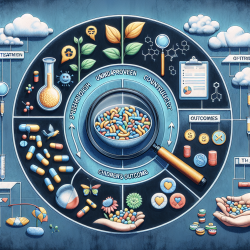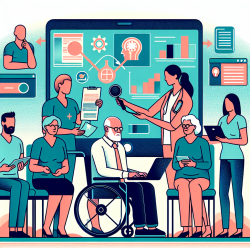Introduction
In the realm of healthcare, particularly in speech-language pathology and related fields, data-driven decisions are paramount for achieving optimal outcomes. The research article "Dangerous medicines: Unproven AIDS cures and counterfeit antiretroviral drugs" by Joseph J. Amon provides critical insights that can enhance the skills of practitioners by encouraging them to adopt evidence-based practices and remain vigilant against misinformation.
Understanding the Research
The research highlights the global challenge of unproven AIDS cures and counterfeit antiretroviral drugs (ARVs), emphasizing the need for rigorous regulatory oversight and public awareness. The article discusses how the promotion of unproven AIDS 'cures' and counterfeit ARVs undermines public health efforts and poses significant risks to patients. These issues are not isolated to one region but are prevalent worldwide, affecting the credibility of healthcare systems and the safety of patients.
Implications for Practitioners
For practitioners, especially those involved in online therapy services like TinyEYE, the implications of this research are profound:
- Evidence-Based Practice: Practitioners must prioritize treatments and interventions that are backed by scientific evidence. This ensures that patients receive safe and effective care.
- Vigilance Against Misinformation: The prevalence of unproven treatments necessitates that practitioners remain informed and critical of new treatments and claims. This vigilance protects patients from ineffective or harmful interventions.
- Advocacy for Regulation: Practitioners can play a role in advocating for stronger regulatory frameworks to combat counterfeit drugs and unproven treatments. This advocacy is crucial for safeguarding public health.
Encouraging Further Research
The research underscores the importance of continued investigation into the prevalence and impact of unproven treatments and counterfeit drugs. Practitioners are encouraged to engage in or support research efforts that aim to quantify these issues and develop strategies to address them. By contributing to the body of knowledge, practitioners can help shape policies and practices that improve patient outcomes.
Conclusion
In conclusion, the research by Amon serves as a vital reminder of the challenges posed by unproven AIDS cures and counterfeit ARVs. By implementing the outcomes of this research, practitioners can enhance their skills and contribute to a safer, more effective healthcare system. To read the original research paper, please follow this link: Dangerous medicines: Unproven AIDS cures and counterfeit antiretroviral drugs.










